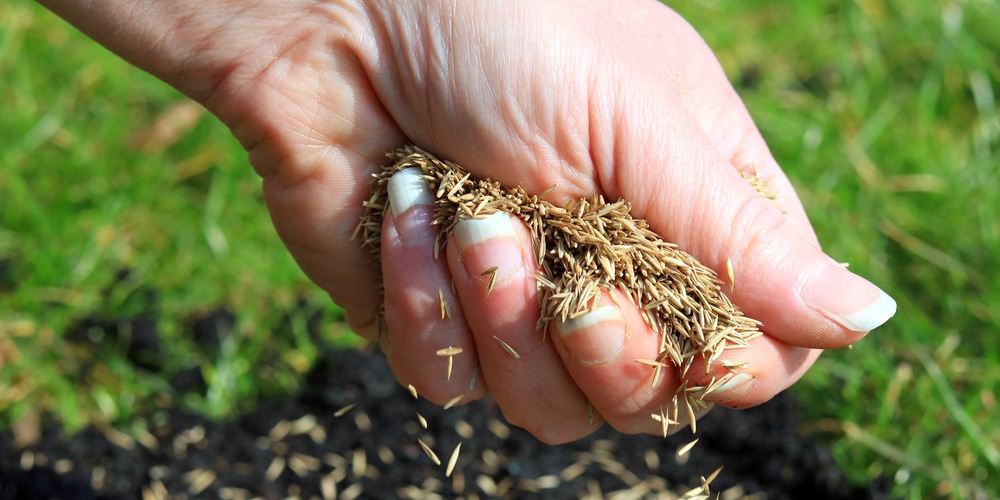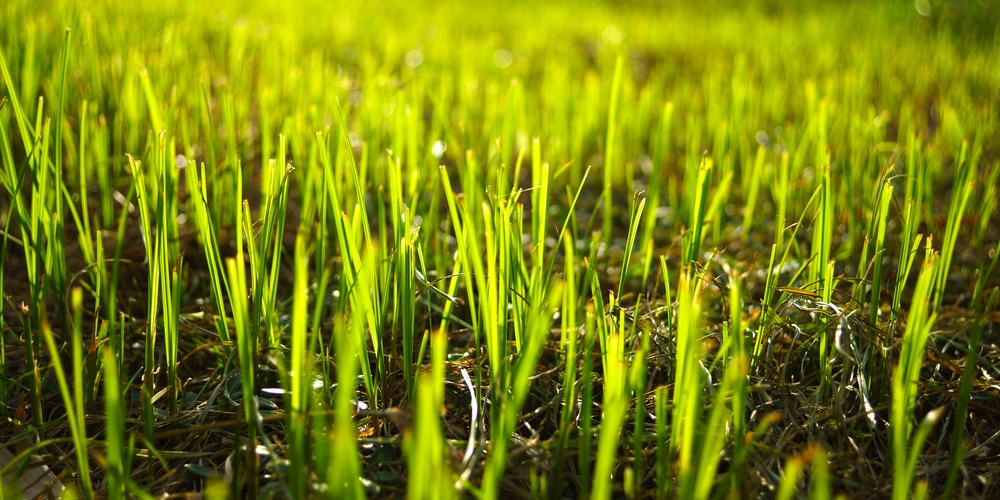Having a lush yard can make your property more attractive. After all, it is one of the first things people notice when getting to your house. However, having healthy grass can be time-consuming. If you have ever grown grass from seeds before, you might be familiar with the level of care a lawn requires to establish itself in your yard.
Yes, you can lay turf and get quicker results. However, growing grass from seeds is your best option if you have a limited budget. Plus, you can get excellent results with the process. But you have to be careful with it, as many things can go wrong.
The good news is that growing grass isn’t particularly complicated. You can have an easier time (and save yourself a lot of headaches) by following a couple of tips and being patient. In this essential guide, our goal is to find answers to a common question: “why won’t my new grass seed grow?” Here, we included some of our favorite tips to help you fix the issue and our recommendations for getting a healthy lawn from your seeds.
New Grass Seed Won’t Grow
Before we start, let’s go over what grass seeds require to thrive: warmth, oxygen, sunlight, and water. If you can’t provide them with even one of these elements, your lawn will struggle. Of course, what your grass needs depends on the variety you choose to plant, so make sure you know about its requirements and set to meet them.
Insufficient Water
While it might sound trivial, one of the most common reasons your grass seed isn’t germinating is a lack of water. Seeds need plenty of water, at least during their first two weeks after planting. Keep in mind that the soil must be moist, but not wet, to prevent the roots from rotting. If you live in a warm region, you may have to water your lawn twice a day to keep it from drying. Otherwise, once every two days should be enough.
Lack of Oxygen: Soil is Too Hard
Turf needs oxygen to germinate. If your soil is too compact, you might have to amend it to prepare it to welcome your grass seeds. Aerate your soil before sowing to ensure grassroots can get deep into the ground. You can rent a machine to carry out the process effectively and quicker. Also, get rid of weeds or dead grass before planting new seeds.
If your soil has a high clay content, you might have to lose it up by adding compost or sulfur. Thoroughly rack the ground to allow better oxygen flow and eliminate damaging debris.
Don’t forget to limit traffic to the areas your sow your seeds. Don’t drive your car across the lawn and prevent kids or dogs from walking or running on the soil, which can halt germination.
Insufficient Sunlight
A lawn needs sunlight to grow. Depending on the variety you selected, your grass might need between two and six hours of direct light per day. If you bury your seeds too dip, you may cause your grass not to grow. However, placing your seeds too close to the ground will cause them to dry quickly and prevent them from germinating.
Place your seeds at half an inch into the ground for satisfactory results. Planting your grass at the proper depth will allow adequate amounts of light to hit them and protect them from possible attacks from birds. Don’t forget to cover them with some mulch to protect them and increase water retention. If your lawn passes through shady areas, consider mixing your seeds with grass types that do well with partial sunlight.
Inappropriate Soil pH
Grass varieties have different requirements when it comes to soil pH. Make sure you test your ground conditions before planting seeds. You can purchase a pH measuring kit and amend your soil to recreate optimal conditions for your grass to grow. While many people skip this step, you must know your soil pH before planting a lawn. Indeed, not knowing your conditions might cause you to create problems by buying amendments and fertilizers not suitable for your ground.
Wrong Timing
Timing is key to ensuring your grass establishes well in your yard. In general, the best time of the year to sow grass seeds is in early fall or mid-spring. However, that also depends on your local weather conditions. Make sure you check them before planting your grass. Plus, each grass variety has different preferences when it comes to temperatures.
On average, planting grass seeds in the fall gives you better results. At this time of the year, the ground is still warm. The hot temperatures speed up germination and allow the grass to develop a root system over the winter. Most grass varieties require the soil to be at least 55F.
Sowing your seeds too early or too late might halt germination and give you poor results. If it’s too cold, your grass won’t have the energy it needs to germinate. Also, if the soil is wet, your seeds will rot. On the contrary, if the temperatures are too hot, your turf will struggle to absorb the nutrients and water it needs to survive while creating a suitable root system.
Using Weed Control Products
Another reason your new grass seed won’t grow is using weed control products that can stop them from germinating. As a rule of thumb, you shouldn’t use any treatment in the ten to twelve weeks before planting seeds. Make sure you read instructions before using any product on your lawn.
Planting Too Many Seeds
Having too many seeds can be counterproductive to your grass’ growth. Indeed, they will compete for resources and fail to thrive (or even germinate). Always follow instructions when seeding a new lawn and don’t increase quantities.
Of course, something similar can happen when planting too few seeds. In such a case, you may notice some patchy or bare areas, which you might struggle to fill.
New Grass Seed Won’t Grow: The Bottom Line
As you can see, there can be many reasons why your seeds are not germinating. Investigate what is halting your lawn’s growth and identify the causes to take proper measures to solve the issue. Don’t forget that sometimes seeds might germinate at different times. If you are using blends, be patient and wait for a little before taking action.

